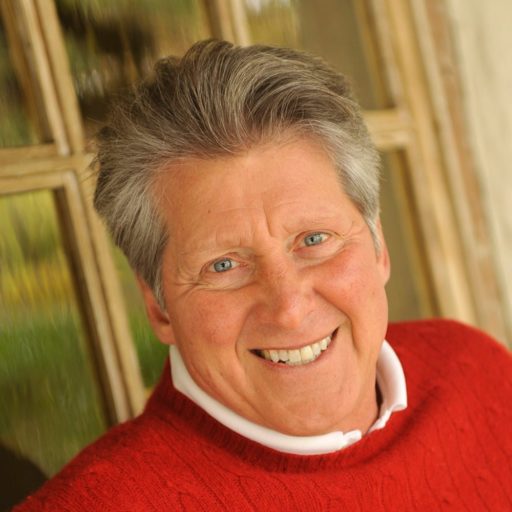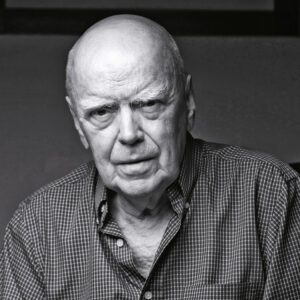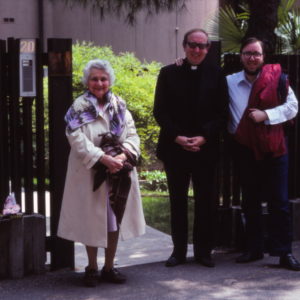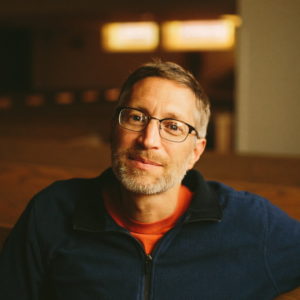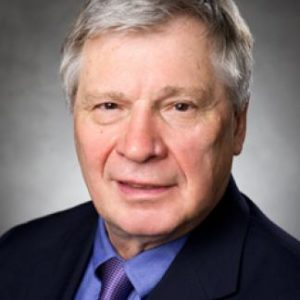Tell us a bit about the title of your book. What does it mean to you to be “hotly in pursuit of the real”?
The title is based on Flannery O’Connor’s recommendation for Catholic fiction writers, that they should be “hotly in pursuit of the real,” meaning the world and its elements, even in their seemingly darker aspects, have value as revelations of God or his absence and should not be ignored in favor of things that seem more noble and high-minded.
Authors often write in one particular format or genre throughout their careers and they come to be identified by it. While you are well known for your Western novels, your work resists a single definition. You’ve written biographical fiction, mysteries, essays, true crime, and your novel Mariette in Ecstasy is about a young nun who may be a stigmatic. What is the common thread in this diverse body of work?
I tend to write about outlaws and outsiders, people who don’t fit in, who resist standard types and conventions. Many people in the arts seem to feel in a grandiose way unlike the so-called “common herd,” though I suspect everyone feels uncommon and just making-do. Still, it seems to me helpful and certainly more dramatic to focus on extreme examples of not fitting in.
Many of your novels have been based on people and events from history. You’ve been praised for being meticulous in your research and faithful to the facts of a historical account—all while enriching your readers’ “historical imagination.” Was there a particular event or influence that first sparked your interest in history and cultivated your historical imagination?
There was a time in college when I was browsing in a bookstore with a friend and I suddenly told him, “Someday I’m only going to be reading history.” His scowling face seemed worried as he asked, “Why?” And I realized I had no idea why I’d said that. But later it turned out to be true. I have written fictions that are wholly products of my imagination or experiences, but I also happen on historical subjects that so startle or excite me that I can’t shake them. I often hold them in my head for a long time until I finally have to write about them in order to get free of them.
A journalist once referred to you as “the Bard of Cupertino, Calfornia.” You’ve lived, written, and taught in Nebraska, Iowa, Michigan, New York, and Arizona. That must have allowed for a pretty varied experience of culture and geography in this country. How have these diverse landscapes colored or influenced your fiction and nonfiction? Is there one region in particular that you most enjoy writing in or about?
My childhood in Nebraska probably governs my fiction and nonfiction more than any other place. I have lived in California for more than 30 years but it has never become the country of my imagination. My Westerns about the Dalton gang and Jesse James are really Midwesterns, so Nebraska serves as a sort of overlay. Mariette in Ecstasy was set in Upstate New York and A Wild Surge of Guilty Passion in Queens because I taught in the east for several years and felt I knew it. Hitler’s Niece and Exiles, placed in Germany and England, are solely products of research with scenes that I hope seem authentic.
Many of the pieces in this book are snapshots of your boyhood and reflections on the influences that shaped your life spiritually and as a writer. They reveal as much about the author as they do the topic at hand. Does this account for the subtitle: Notes toward a Memoir?
Notes toward a Memoir has to do with my tendency to avoid autobiographical materials in my fiction, but that it leaks through in my nonfiction as a method of avoiding abstractions in illustrating a thematic point.
In an interview with Brennan O’Donnell, you said “I wrote Isn’t It Romantic? because I thought it was good to write an entertainment in the time right after 9/11, as a reprieve for myself and for readers.” Taking into account current events in the United States and beyond, what kind of book would you say this generation of readers needs?
We have always needed comedy and escapist suspense throughout the ages; perhaps that is more evident now than ever. I tend to deal with current events solely by analogy. And what I hear from readers lately is the need for books that are spiritually illuminating and affirming.
You write about your love of golf—even golf in bad weather. Is part of the appeal of the game for you that it provides a practice or perhaps even a form of meditation that is separate from the other routine activities of daily life?
What I like about golf is its separation from ordinary life and, simultaneously, its function as a metaphor for the struggles and successes we generally deal with. When I’m on the course I’m hardly ever thinking about anything but the next shot, or of an anecdote or joke that would be amusing to my playing partners. Everything is properly superficial and goal-oriented in a purely physical way. That is tremendously restful, mentally, no matter how badly I play.

